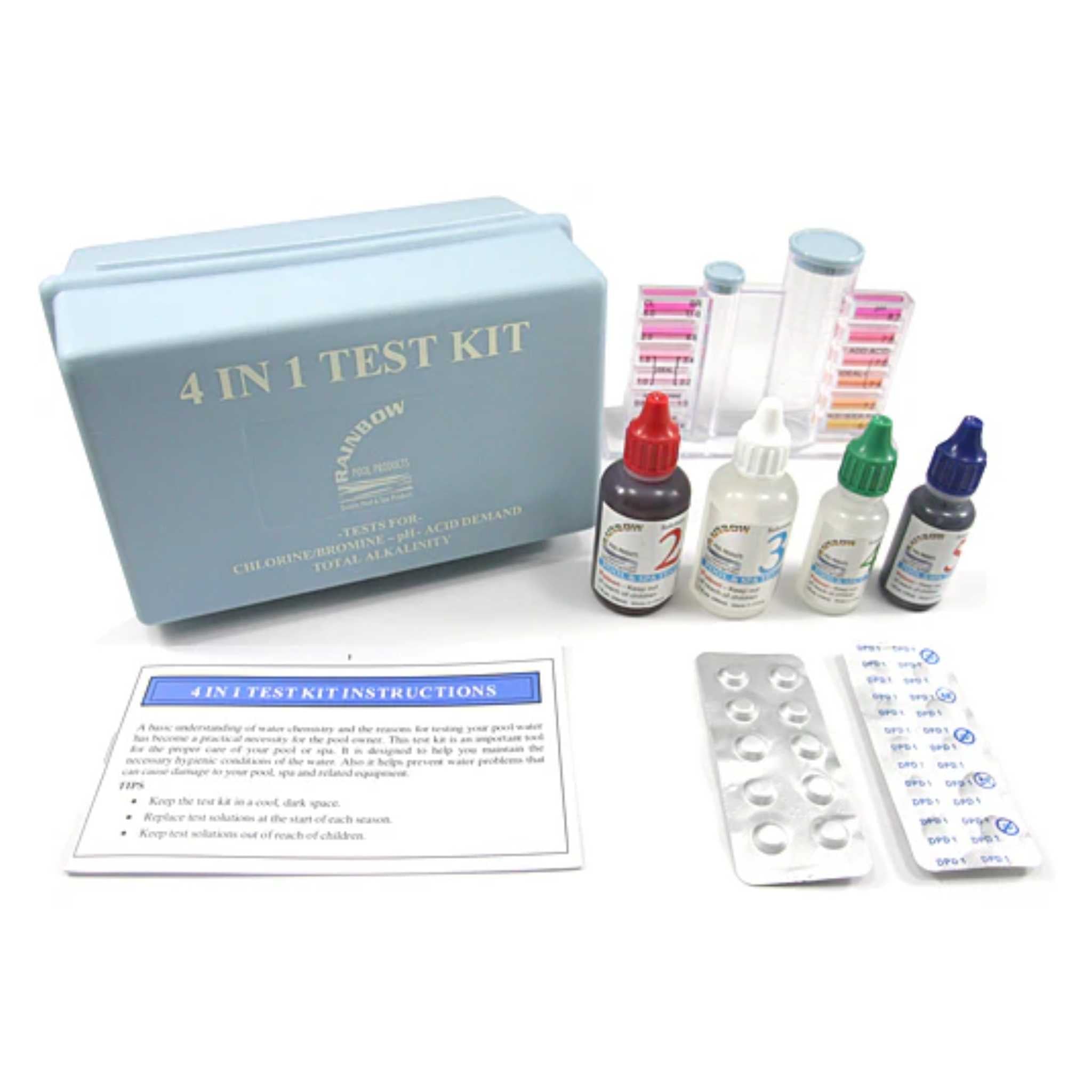Picture this: a sparkling oasis in your backyard, inviting you to escape the summer heat. To keep your pool water as clear as your favorite memories, maintaining the right chemical balance is key. In this guide, we'll walk you through the essentials of pool chemistry, ensuring your aquatic haven remains a source of joy. Let's dive in!
Understanding Pool Chemistry: A Deep Dive When it comes to pool maintenance, knowledge is power. The first step is understanding the basics of pool chemistry. Your pool water's pH level, alkalinity, and chlorine content play crucial roles in maintaining a clean and safe swimming environment.Level: Aim for a pH level between 7.2 and 7.6 to prevent skin and pH eye irritation while optimizing chlorine effectiveness.
Alkalinity: Maintain alkalinity between 80 and 120 ppm to act as a buffer against pH fluctuations.
Chlorine Balance: This essential sanitizer kills bacteria and algae. Aim for a chlorine level between 1.0 and 3.0 ppm.

Regular Water Testing: A Simple Ritual with Big Rewards Just as you check the weather forecast before a day at the beach, regularly testing your pool water is crucial. Invest in a reliable test kit and make water testing a weekly ritual. This proactive approach allows you to identify and address chemical imbalances before they escalate.
Testing Frequency: Aim to test your pool water at least once a week, especially during the swimming season.
Adjusting Levels: If test results reveal imbalances, use pool chemicals to adjust pH, alkalinity, and chlorine levels accordingly.
Balancing Act: Tips for Chemical Adjustment Maintaining the right chemical balance is a delicate dance. Here are some actionable tips to ensure your pool water remains pristine:
pH Adjustment: Use pH increasers or decreasers to bring your water into the optimal pH range.
Alkalinity Adjustment: Add alkalinity increasers to raise levels or alkalinity decreasers to lower them.
Chlorine Boost: Consider shock treatments to give your pool a chlorine boost, especially after heavy usage or rainfall.
Seasonal Considerations: Adapting to Nature's Rhythms Mother Nature can influence your pool's chemical balance. Be mindful of seasonal changes, temperature fluctuations, and weather patterns, which can impact your pool water's chemistry.
Summer Challenges: Hot weather may lead to increased chlorine demand, so be prepared to adjust accordingly.
Rainfall Impact: Heavy rainfall can dilute your pool water and affect pH levels. Test and rebalance after significant rain.
Maintaining the right chemical balance in your pool might seem like a complex task, but with a bit of knowledge and regular attention, it becomes a rewarding part of pool ownership. Keep your pool water in perfect harmony, and let the joy of crystal-clear swimming experiences continue. Dive into the art of pool chemistry, and let your aquatic paradise be a source of delight for seasons to come.




